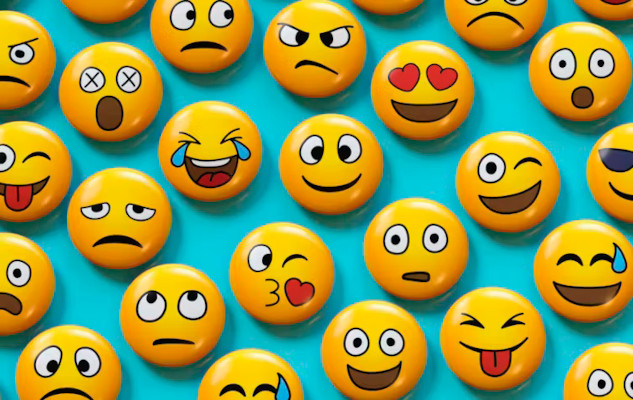
Are ghosts real? This article presents eleven common signs of haunting, from cold spots and flickering lights to invisible sensations and shadowy figures. Learn how to identify potential ghostly presences and when to consider rational explanations for these eerie experiences.

Propaganda’s influence often overshadows education, shaping beliefs and biases in lasting ways. This article delves into the power of propaganda, drawing lessons from history’s masters like Goebbels and Bernays. It also explores combatting misinformation using proactive methods, including prebunking and refutation. Learn how understanding emotional triggers and cognitive biases can help build resilience against today’s misinformation tactics.

Political views influence search ad clicks, with conservatives more likely to click on sponsored links while liberals favor organic content. This research explores the psychology behind "search ad avoidance" and reveals how values shape online behavior. Discover how political orientations can drive digital ad engagement, providing valuable insights for marketers targeting diverse audiences.

Struggling with body image can keep us stuck in a cycle of self-criticism. This article offers four powerful steps to shift your mindset and fully embrace self-love and body acceptance. Learn how to focus on different parts of your body, send love to your “not good enough” parts, take up space, and revel in being unapologetically yourself. Start healing your body image wound and appreciate the beauty of your body today.
- By Ren Hurst

This article explores how domestication affects both humans and animals by disconnecting them from their natural emotions, creating codependency and emotional stagnation. Learn how the hidden cost of domestication robs all parties of their authentic power and creative potential, leading to long-term consequences for emotional autonomy and growth.

Self-forgiveness is a vital process for personal healing and moral development. More than just self-comfort, it involves confronting guilt and shame, acknowledging wrongdoing, and making amends. By working through these emotions, individuals can grow morally and improve their relationships with others. This article explores the stages of self-forgiveness and its importance for emotional and ethical well-being, helping readers understand how to embark on this challenging but rewarding journey.

Behavioral science offers strategies like the "Mary Poppins Principle," which turns mundane tasks into fun activities to enhance motivation. By adding enjoyment to necessary tasks and using nudging techniques, behavioral science helps drive better decisions and lasting changes. From exercise routines to healthier choices, this approach shifts how we engage with everyday habits, leveraging fun and subtle changes to increase adherence and success.

Empathy is fading in today’s fast-paced, divided world, disconnecting us. This article delves into why empathy is declining and offers actionable solutions for developing it in an unempathetic world. From political divisions to the isolating effects of social media, we explore how to rebuild human connection and foster compassion in a society that seems to have lost its emotional touch.
A new study challenges the idea that loneliness directly causes illness but confirms its complex connection to both mental and physical health. While loneliness may not be a root cause of diseases, it is closely associated with conditions like depression and poor socioeconomic outcomes. Learn more about how loneliness influences health and why addressing it remains important for public well-being.

Can you change your personality? According to modern psychology, the answer is yes. Research shows that by adjusting your thoughts, feelings, and behaviors, you can shape your personality traits to better align with the life you want. From cognitive-behavioral techniques to intentional shifts in behavior, learn how personality change is possible in just a few months, not decades. Explore how psychology can help you become the person you aspire to be.

Mixed emotions are a fascinating topic in neuroscience, as your brain processes both positive and negative emotions simultaneously. Studies show that while certain brain regions handle conflicting feelings, others allow us to regulate and navigate these emotional states. Understanding how mixed emotions form in the brain can help explain why we experience complex reactions during important life changes, such as sending kids to college or leaving a job.
- By Jude Bijou

Learn how to find peace with five simple yet powerful strategies designed to calm your mind and reduce fear. Discover the connection between peace and fear, and how managing your emotions with practical techniques like shivering and staying present can lead to a more peaceful and focused life.
- By Sue Van Raes

Learn how to overcome resistance and free yourself from limitations with mindful strategies that transform resistance into a powerful ally on your journey to personal growth.

Learn how being authentic can help you be a better you every day. Discover the power of living true to yourself, not competing with others, and how it leads to personal growth and fulfillment.

This article explores how overcoming fear with love and inner strength can unlock the miraculous power within us. By understanding the destructive nature of fear and embracing the high frequency of love, we can transcend limitations and live in alignment with our true selves. Learn how to move beyond fear, reclaim your power, and create the miracles that are your birthright.

Moms often carry the heavier mental load when it comes to household tasks, even when fathers help with physical chores. This cognitive burden, which includes planning and organizing, has a significant impact on their mental health, leading to higher rates of stress, depression, and burnout. Research reveals that addressing the mental load disparity is key to improving family dynamics and supporting women’s well-being.
- By Cate Montana

This article explores how the shadow and the influence of mind parasites can hijack our thoughts and behavior. Using the metaphor of the devil and angel on our shoulders, it delves into how our unconscious fears and insecurities open the door for destructive tendencies. Discover the role of the shadow, the ego’s struggle, and how mind parasites fuel self-interest and negativity, preventing us from living in alignment with our true nature.

Conspiracy theories are not just fringe ideas—they have real consequences, fueling division and violence in society. Whether it’s through social media echo chambers or misinformation spreading unchecked, these theories polarize communities and lead to radicalization. Learn about the dangerous impact of conspiracy theories on social structures, democracy, and individuals, and discover what steps can be taken to mitigate the harm caused by these ideologies.
- By Nicole Goott

Non-harming, rooted in various spiritual traditions, is more than just refraining from physical violence; it encompasses not willfully inflicting harm by thought, word, or action.

Discover the transformative power of forgiveness through the ancient Hawaiian practice of Ho’oponopono. Learn how these simple words can heal and bring you peace.

A second look at the blue-eyes, brown-eyes experiment that taught third-graders about racism

Explore how hope influences advanced cancer prognosis and patient awareness. Understand the importance of coping strategies and realistic goals for better cancer care

Discover how everyday people (you and me) can make a difference. We can create a better world through positive social change and conscious personal transformation.
















